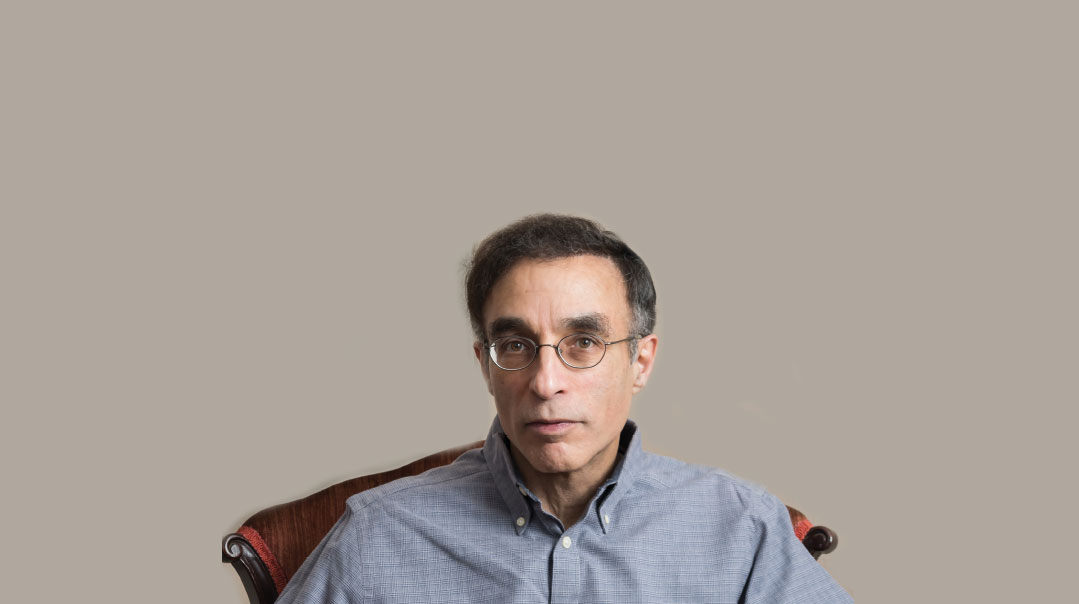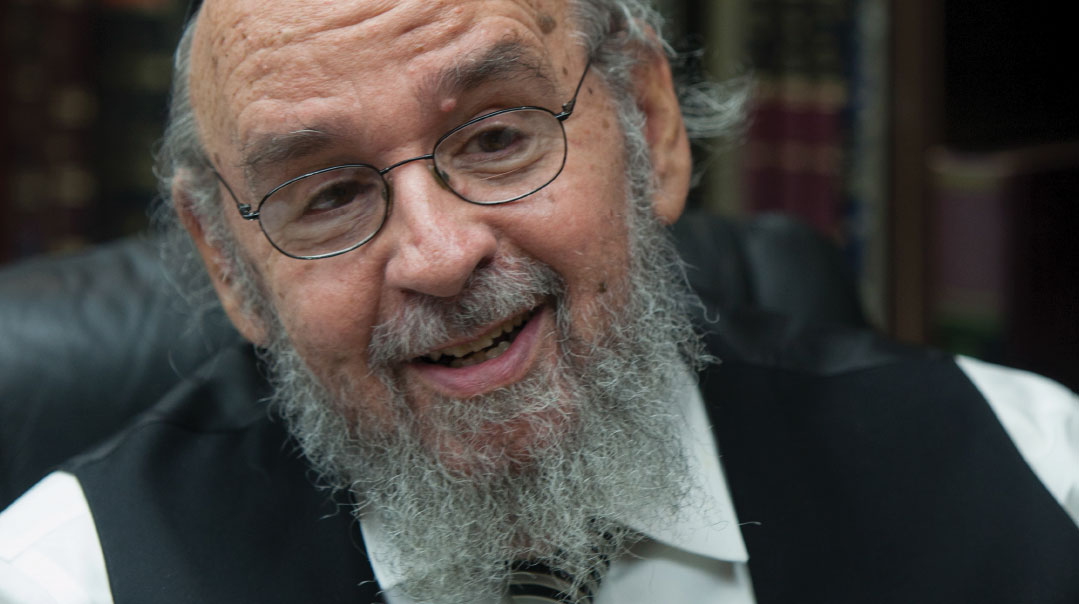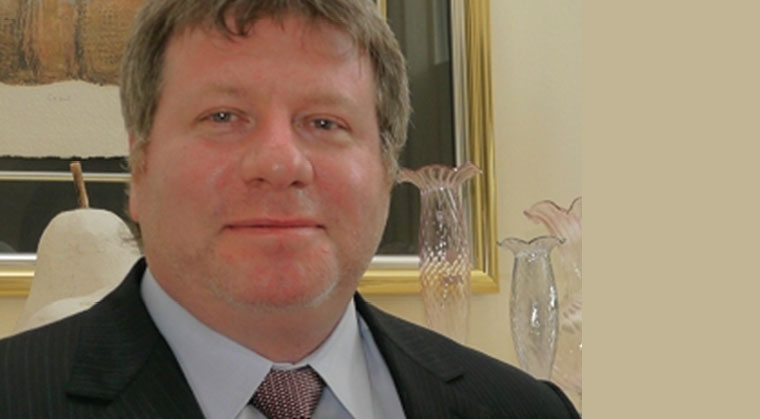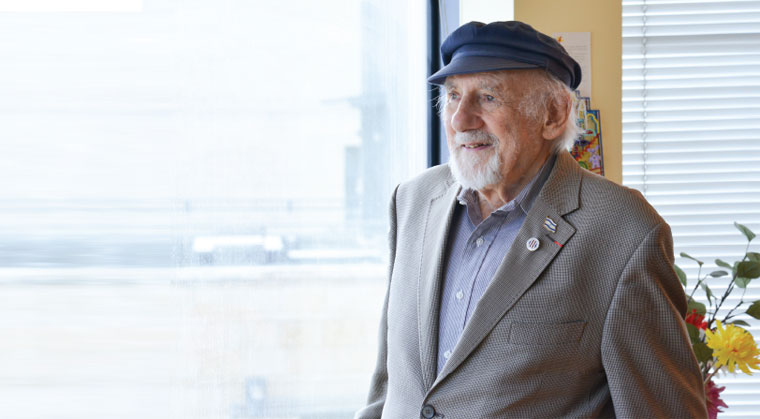Catching Up with… Csanád Szegedi

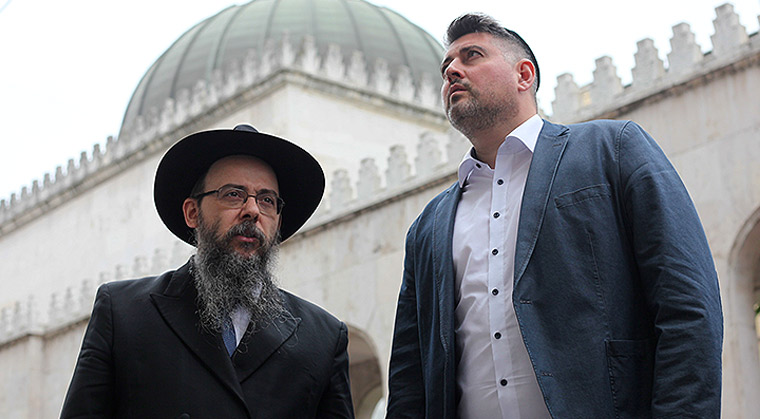
Flashback
J
une / July 2012. A political rival of Csanád Szegedi — then 28, and the number-two man in Hungary’s xenophobic, anti-Semitic Jobbik party — posts documents on an ultra-right-wing website showing that Szegedi is Jewish.
Szegedi visits his 91-year-old grandmother, who, after a series of conversations, spills the secret she thought she would carry to her grave: I am Jewish, and so are you. Our family name was Klein. She rolls up her sleeve, revealing the telltale green number the Nazis tattooed into her skin at Auschwitz.
One year later, in August 2013, I meet Szegedi in Budapest, at the home of Budapest’s rosh beis din, Rabbi Boruch Oberlander, who served as interpreter for what at the time was Szegedi’s first full-length interview with a Jewish publication [“Suddenly Jewish” / Mishpacha #477].
Last week, we caught up by phone, in our first conversation since that original interview.
“My whole world became one big black hole,” Szegedi said, recalling his personal upheaval. “I didn’t know anything about Judaism and I had no idea what to expect.”
No Turning Back
Jobbik party leader Gábor Vona wanted Szegedi to remain inside the party leadership to prove that the party was not anti-Semitic.
Szegedi himself was torn between his political affiliation and his newfound yearning to learn more about what it meant to be a Jew.
Szegedi reached out to Rabbi Shlomo Köves, the Chabad executive rabbi of the Unified Hungarian Jewish Congregation, whom he had seen on television speaking in eloquent fashion on behalf of the Jewish community.
Rabbi Köves referred him to an able guide — Rabbi Oberlander — who took Szegedi under his wing, introducing him to a wide range of Torah topics and to the benefits and responsibilities of becoming a member of the tribe. They forged a deep friendship and began a weekly chavrusa that continues to this day. Szegedi quit the Jobbik party — which features open anti-Semitism at its rallies — and began attending synagogue services, where some fellow members embraced him and others were outright repulsed.
Four years later, in 2016, a producer filmed a documentary, with Szegedi’s cooperation, entitled “Keep Quiet.” The film raised the following question: “Is this astonishing transformation a process of genuine reparation and spiritual awakening or is he simply a desperate man with nowhere else to turn?” Szegedi’s answers left some reviewers with the impression that Szegedi might one day turn his back on his newfound religion. I asked him that same question, point-blank.
“The producers wanted to end the documentary with a big question. It was good theater, and professionally, it might have been the correct decision,” Szegedi told me. “But I’m not happy with that ending. I would like to very clearly state, here and now, that I cannot imagine myself turning my back on Judaism any time in the future.”
PROGRESS REPORT
“First of all, I feel much better and calmer with my Yiddishkeit. And I feel very grateful that I’m able to continue the chain that stopped with my grandparents, and with that knowledge, both physically and spiritually, I see myself as much better off than I was five years ago.”
Pesach 5778 was a hallmark event. Szegedi made his own Seder for his wife, mother, brother, and his two sons, ages nine and six. In preparation, he spent many days learning the relevant halachos and minhagim with Rabbi Oberlander and enlisted his entire household in the ritual Pesach cleaning. “My wife and kids were very excited and did a great job, and everyone was in a good mood.” About the Seder itself, he said not everything went as planned, but that’s okay. “I felt like a child taking his first steps, but if Hashem takes the circumstances into consideration, I believe He was happy with me.”
Szegedi’s wife, whom he married before finding out he was Jewish, is not Jewish herself. Five years ago, Szegedi told me she was 100 percent supportive of his becoming a practicing Jew.
“If you ask me the same question today, my answer is she is 1,000 percent supportive,” Szegedi said, crediting Rabbi Oberlander for advising him to take things one step at a time. “He’s the one who told me, the more she sees that you’re moving forward and are happy with what you’re doing, the more she will support you, and that’s truly what happened. In keeping Shabbos she is a 100 percent partner. We are keeping kosher as much as we can. I can’t say that all our utensils were kashered but we use a lot of paper and plastic plates and forks and buy our food at the kosher market. My wife has no problem moving ahead. If only I would have even more courage I would be able to do more. On the other hand, I don’t want to go too fast because I want us to grow together in the process.”
I’m gratified by the people who turned to me with acceptance and I hope eventually all the skeptics will admit that I’m on the right path.
But even if they don’t, it won’t deter me”
POLITICALLY IMMUNE
Six years after the Szegedi revelations, the Jobbik party he left behind is still Hungary’s second-largest political movement. However, it seems less of a threat now that Prime Minister Viktor Orban’s center-right Fidesz party has won control of two-thirds of Hungary’s parliament in both the 2014 and 2018 elections. Jobbik elected a new leader last month who is trying to tone down some of the party’s worst tendencies and position itself as a more palatable opposition. Szegedi still follows politics closely, but doesn’t miss it, and has chosen a new career in real estate investments.
How worried are you by the growing strength of radical right-wing parties in Europe?
Obviously, we must pay attention to what’s going on in the populist, extreme right, but having been a member of the European Parliament, let me tell you I am much more afraid of the European radical left wing. They are against Israel politically, and economically stand for boycotting Israeli products. I really believe that the State of Israel must embark upon a much stronger public relations offensive to fight against them.
Given your political experience in Hungary, how would you suggest Jews fight anti-Semitism?
We must accept the fact that anti-Semitism has been and is going to be around for a long time. Anti-Semitism can be compared to a virus that invades our system. The best way to avoid being attacked by a virus is by prevention. The stronger our immune system, the better the chances of avoiding an attack. We must strengthen ourselves and our identity and be sure of our path. Only afterward can we take action, whether it’s educating people about Judaism, or changing laws and regulations.
Many Jewish groups are fighting against legislation in certain European countries that would make bris milah and shechitah illegal. Do you have any advice for these groups?
The local Jewish organizations need to be much stronger in lobbying against this legislation. Meanwhile, we also must understand that these types of legislation are more aimed against Islam than against Judaism. We must be very clear and be able to differentiate between the very unprofessional halal killing of animals with the very professional work of a mohel and shochet. We can’t allow these two concepts to get mixed up.
ACCEPTANCE & REJECTION
In his ongoing struggle for Budapest’s Jewish community to accept his repentance as genuine, he has learned that Judaism is not a popularity contest.
“A big part of the community has accepted me. Surely, I’m gratified by the people who turned to me with love and acceptance and I hope eventually all the skeptics will admit that I’m on the right path. But even if they don’t, it won’t deter me. In the Jewish community, no one can be accepted by everybody. People revolted against Moshe Rabbeinu, so I see this can happen with men who are far greater and more righteous than me. I’m more concerned about the Jews who consider themselves to be atheists. They’re skeptical about G-d. Being skeptical about me is minor, in comparison.”
In April 2018, Dovid Szegedi was a guest speaker in Innsbruck, Austria, at the annual EuroStars conference, Chabad’s equivalent of Birthright for European youth, mainly from the former Soviet Union. Szegedi found kindred spirits there, surrounded by more than 1,000 curious youngsters, many of whom are first coming to grips with their Jewish identity at a later age, on a continent that is either ignorant of or hostile to their heritage.
One youth asked Szegedi: How can one change his identify while avoiding constantly battling oneself?
“I told them they must have the courage to jump in. At the beginning, it won’t be easy because Yiddishkeit looks like an all-or-nothing game. It isn’t. I told them you can start by learning, by keeping certain mitzvos and not to feel that they must get to 100 percent right away. I also advised that going too fast can turn off other people in their environment; but once they do take a step forward, they can’t make any compromises and Hashem will help them make the adjustment.”
(Originally featured in Mishpacha, Issue 717)
Oops! We could not locate your form.







